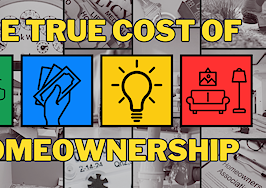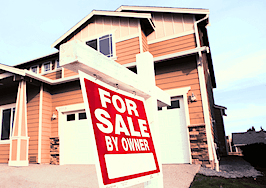No one can predict the future of real estate, but you can prepare. Find out what to prepare for and pick up the tools you’ll need at Virtual Inman Connect on Nov. 1-2, 2023. And don’t miss Inman Connect New York on Jan. 23-25, 2024, where AI, capital and more will be center stage. Bet big on the future and join us at Connect.
As Realtors, we must stay abreast of housing issues within our communities. We should be advocating in our communities for more affordable and workforce housing.
First, let’s set the stage with some standard definitions. While the metrics determining whether housing is workforce housing, affordable housing or luxury housing can vary, these are the most common definitions I’ve found (note: both are based on household size):
- Affordable housing: For households making at or below 60 percent of the median income for the area.
- Workforce housing: For households between 80 percent and 120 percent of the median income for the area.
Within a market, certain areas are obviously more expensive than others. Look at Des Moines, Iowa, for instance. Per Altos Research, the median list price for a single-family home is $232,500. Just 15 minutes west of downtown, in West Des Moines, the median list price is $526,422.
Despite the difference in median list price, employees from food service workers to childcare providers to professionals and executives all work in West Des Moines, like many suburbs.
Suburbs around the country are touting their infrastructure, quality of life and amenities to attract new, higher-income residents (who purchase higher-income homes and pay more in property taxes). But, per the National Low Income Housing Coalition: “Like roads and bridges, affordable housing is a long-term asset that helps communities and families thrive.”
Local amenities depend on employees in many industries like child care, home health care, service, etc. Per the U.S. Bureau of Labor Statistics, absenteeism rates vary widely among professions, from a low of 3.1 for management and professional employees to 4.7 for service employees.
In other words, 50 percent more people are absent from businesses that form the backbone of our amenities, leading to short-staffing and frustration in these care and service fields. We depend on the people who care for our children and our aging parents, and when those people cannot make it to work, it impacts us quickly.
Absenteeism has many causes. Two of the top eight causes of absenteeism, family issues and commuting issues, could be reduced if these employees were able to live closer to their place of employment and have a choice in their housing type.
The need for more affordable and workforce housing is well documented in the U.S., but the question is always where it should go. The issue is a phenomenon called NIMBYism, otherwise known as “not in my backyard.” When denser, lower-priced housing is proposed, existing residents often oppose these efforts, expressing concerns such as increased crime and traffic, lowered property values and a lower quality of life.
In fact, the opposite is true. Per the University of California Irvine: “The placement of affordable housing does not negatively impact the surrounding community, and in many ways, it enhances both local property values and increases public safety.”
In addition, when businesses suffer higher absenteeism, those businesses can no longer serve their communities as effectively and efficiently. In essence, by opposing affordable and workforce housing, residents of these areas may actually be decreasing their quality of life.
What Realtors can do to help
Here are my challenges to you as a conscientious Realtor to get involved in your communities and neighborhoods:
Step 1: Educate yourself on the national, regional and local levels
Find out about nonprofits and entities advocating for affordable housing solutions, down payment assistance solutions and more within your communities. At a national level, publications, such as ShelterForce, are dedicated to educating anyone interested in housing issues.
Nationally, you might find large banks actively donating money to work on this issue, or even companies like Amazon through their Amazon Housing Equity Fund. Finally, several nonprofits are working on these issues nationwide; the most well-known is probably Habitat for Humanity.
Each community has its own smaller organizations as well. For example, here in Des Moines, some nonprofits actively working on the housing affordability crisis are the Polk County Housing Trust Fund, HOME, Inc., and Neighborhood Finance Corporation.
Step 2: Learn about proposed solutions
Zoning changes and innovative housing solutions are making their way across the country.
Some examples:
- Arlington, Virginia, recently allowed lower-density multifamily housing to be built (up to six-unit structures).
- Washington state has passed legislation to allow duplexes, triplexes and fourplexes in most areas, overriding local zoning.
- Cities as far apart as Oakland, California, and Durham, North Carolina, are working to both allow accessory dwelling units (ADUs) and keep the building cost for these units lower.
Several zoning changes are unique in that they are taking place in suburbs or higher-income areas, as opposed to traditionally lower-income areas. This is the kind of creative thinking that can help ease the housing affordability crisis.
Step 3: Show up
Realtors can mobilize their communities, using their connections to both poll the community and to impact proposed changes and legislation.
Consider these examples:
- In Knoxville, Tennessee, the East Tennessee Realtors have polled over 800 residents to produce zoning change proposals.
- California’s Contra Costa Association of Realtors, located in the Bay Area, helped to defeat a proposed real estate transfer tax and replace it with a slight increase in the utility tax, thus stopping another barrier to affordable homeownership in an area already known for its sky-high housing costs.
Step 4: Small changes to make right now
Even if you are not able to mobilize your communities in this way, as a Realtors, you can always take smaller steps:
- Donate to or volunteer with the affordable housing nonprofits you find. Make sure you do it publicly — not to brag, but to inspire others to follow suit.
- Share the posts and program details for organizations who are doing the work.
- When zoning changes come up, review them thoughtfully before expressing an opinion. You may find yourself saying YIMBY (yes in my backyard) and encouraging others to do the same.
If you have made it this far, thank you. Together, we can create more affordable and workforce housing, elevating living conditions throughout our communities.
After spending years in corporate America, Nora Crosthwaite decided to become a residential Realtor on a whim in 2015, serving the Des Moines, Iowa area. She built a small team, incorporating systems throughout, and now owns Home Sweet Des Moines, brokered by Realty ONE Group Impact. She is currently the chair of the Iowa Association of Realtors Diversity Committee and focuses any extra time on affordable housing initiatives in the Des Moines area. Connect with her on Threads and Linkedin.













